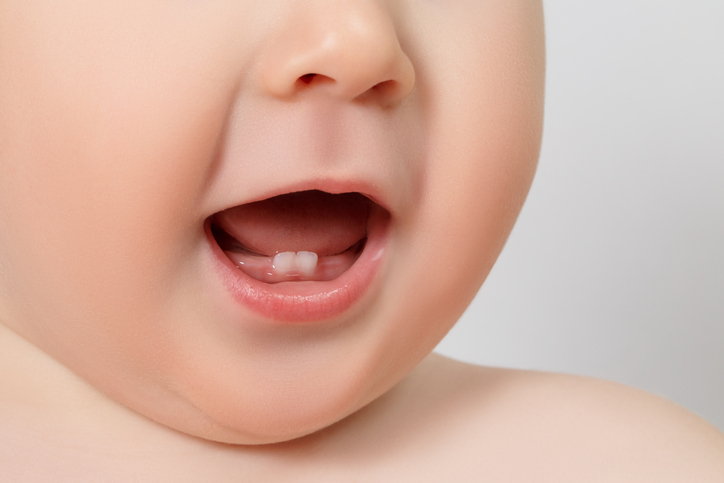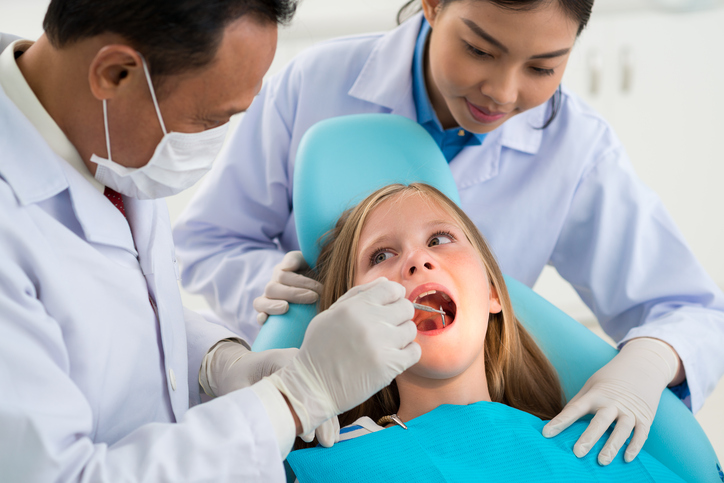
Aside from inviting the tooth fairy for a visit, baby teeth serve a very important purpose. It is a common misconception amongst parents that baby teeth are not important because they eventually fall out. However, this is untrue. Baby teeth, also known as primary teeth, milk teeth, or deciduous teeth, play an important role in a childa��s development and overall health.
Professional dental assistants will typically work with a variety of patients over the course of their careers. As a result, you could end up helping to care for small children with baby teeth. Read on for a few insights into why infants and children have baby teeth.
Intra Oral Dental Assistants Should Know Baby Teeth Help With Nutrition
Baby teeth begin to form during the second trimester of pregnancy, but typically wona��t erupt until about 6 months after a baby is born. The first teeth parents will notice are the two bottom front teeth. These teeth are known in dentistry as the lower central incisors. Other baby teeth will continue to slowly come in afterwards. Typically, the front teeth will come in before the back teeth do. As you may see once you become a dental assistant, the last teeth to develop are the molars, which are also the last teeth to be lost and replaced by adult teeth.
Once baby teeth come in, they play an important role in helping young patients maintain proper nutrition. Having teeth helps children learn how to properly chew food. In addition, it opens children up to being able to eat different types of nutritious foods that their growing bodies need.

Students in Dental Assistant College Programs Might Know Baby Teeth Help With Speech Development
Can you imagine trying to speak without teeth? It would be incredibly difficult to form sounds. Baby teeth help children form words, sentences, and phrases until they develop their permanent set of teeth. Children start to develop words and phrases between 18 months and two years of age. During this time infants have many baby teeth to help them with their speech.
Having baby teeth also helps children learn where to place their tongue in their mouth. It acts as a guide to keep the tongue in place, so it doesna��t wander all over the mouth and create a speech issue. This also helps teach children how to chew food without biting down on their tongue.
The Most Important Role Baby Teeth Play Is to Prepare the Mouth for Growth and Development
Although the other roles baby teeth play are important, the single most important role baby teeth play is in the development of the mouth and jaw. As any professional intra oral dental assistant knows, baby teeth hold space in the mouth for adult teeth. When a child is young, teeth are needed for reasons like eating, smiling, and speaking, but the jaw is not big enough to handle an adult set. So until their jaw has developed enough space, baby teeth take their place. Once children outgrow their small set of teeth, their jaw is ready for the adult set.

A baby tootha��s root forms the pathway for the adult tooth to move down and replace it as it falls out. If a baby tooth gets a cavity and has to be removed prematurely, it can cause problems for oral development. Because the baby tooth cannot hold the space anymore, when adult teeth come in they may move into the lost tootha��s spot. This can lead to crowding, overlapping, and the need for intervention such as braces when the patient is older. Under the supervision of a dentist, you may assist in installing a space saver into a childa��s mouth to make sure this doesna��t happen.
Are you interested in learning more about dental assistant college programs?
Contact the Canadian Academy of Dental Health today!

